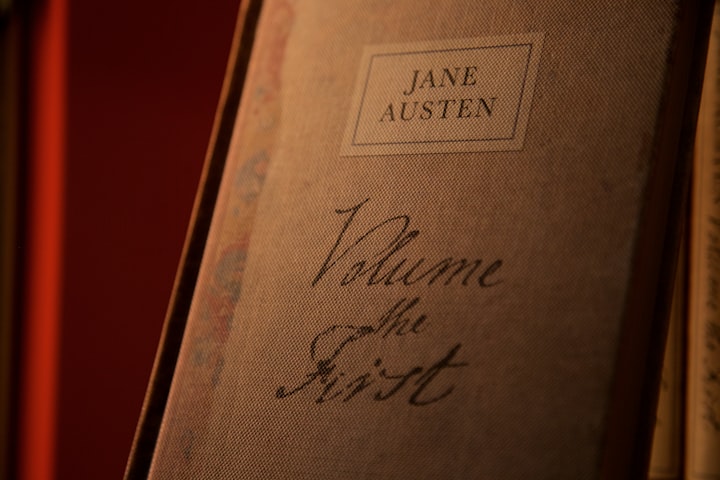Why Austen Is A Classic
Satire, Fantasy and Happily Ever After

Jane Austen published four books in her lifetime, with the final two published after her death at the age of 42. Though the books gained a number of wealthy admirers during Jane's lifetime, she spent much of her life in relative poverty after the death of her father, and the works (a kind of satirical romance) also had their share of critics. Against all the odds, however, they endured as staples of classic literature, even centuries after her death.
Why?
What set these books so far apart? How did Pride and Prejudice become one of the best-known books in the world, translated into multiple languages and with countless media adaptions, with Jane's other books not far behind? What made them endure when other authors faded into obscurity?
When studied analytically and broken down to their essentials, the books aren't particularly groundbreaking. There is nothing in them that is actually a new concept. Satirical social commentary and unlikely romance in unrealistic settings were already popular, and had been for centuries.
In fact, Austen's books are tales literally as old as time.
The handsome prince (or wealthy single gentleman) realises the impoverished-yet-deserving girl's virtuous qualities in spite of her disadvantages and falls in love with her despite all the obstacles in their way.
The heroine is deceived by lies but eventually discovers the truth and finds true love with a man deserving of her once she has proven that she will not be decieved again and fully comprehends what she believes herself to have lost.
A child in a large family is distinguished first by chance and then by virtue, proving themselves worthy of their good fortune.
Where Jane Austen stands out is how she skilfully interwove those familiar stories with social issues and themes, and making her characters so very human.
Anne and Elinor are well-intentioned, guided by love and propriety that leaves them open to being manipulated into error. Marianne and Elizabeth are fooled by a handsome face and pleasing manner that hide a shallow selfishness. Fanny is practically the mouthpiece of a Morality play, but suffers horribly in her role as the passive moral example, leading to an underlying message that taking control of our own lives may be risky, but passivity is no assurance of safety or happiness.
Also, I defy you to find any woman who doesn't go weak at the knees at the thought of a handsome man actually listening when the woman he loves tears him a new one for being an arrogant berk, even if part of her anger was rooted in misinformation. Mr Darcy not only listened, but acknowledged his wrongs, and put significant effort into fixing those mistakes, despite no hope of reward because he was willing to respect Elizabeth's extremely spirited 'no' when she turned him down.
I'm not even particularly into men, but I have to say that this attitude is the sexiest thing I've seen in print.
One frequent complaint of critics of Austen is how unrealistic it is that the Heroes of the books would actually deign to marry the heroines with no inducement other than love.
The first answer is, of course, that Austen's works are fictional. The male love interests are not mired in the debt that so plagued the peerage and gentry of the time, as seen in the character of Sir Walter in Persuasion, and thus have no need of a large dowery to save themselves or their estates. Also, that the critic has a rather dim view of the male gender as a whole, and is clearly not immune to their own prejudices.
Viewing the books with suspended disbelief and a view toward realism, it is worth pointing out that Darcy and Bingley and Colonel Brandon are all masters of their own fate, without parents capable of disinheriting them or cutting them off financially. They have a degree of choice and control that was rarely afforded to young gentlemen of the time, and even more rarely to young men not already married and in control of their wife's large dowery. If they want to be guided by their hearts rather than their purse-strings when choosing a marriage partner, there is no-one to gainsay them.
Had that not been the case, with our heroes dependant on the goodwill of still-living parents, as illustrated by Henry Tilney and Edward Ferras, kept in line by the risk of being disinherited like Frank Churchill, Pride and Prejudice might have turned out very differently...
If you liked this story, leave a heart or a tip, and follow me on Vocal and Medium!
About the Creator
Natasja Rose
I've been writing since I learned how, but those have been lost and will never see daylight (I hope).
I'm an Indie Author, with 30+ books published.
I live in Sydney, Australia
Reader insights
Outstanding
Excellent work. Looking forward to reading more!
Top insight
Heartfelt and relatable
The story invoked strong personal emotions







Comments
There are no comments for this story
Be the first to respond and start the conversation.